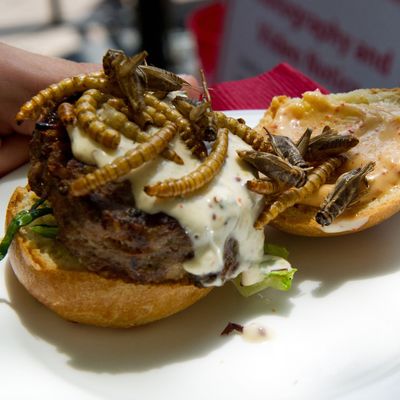
So many things about the business of everyday living feel just a little bit off when you’re in a new place. Time slows down; you have trouble sleeping; even foods you might never consider trying back at home suddenly have new appeal when you spot them on a menu.
In a recent event hosted by Barnard College about the science of taste and smell, speaker John Glendinning, a Barnard biology professor who studies taste, recalled one of his own travel-inspired changes of heart: On a trip to Japan years ago, he recalled, he tried — and enjoyed — a dish of grasshoppers coated in teriyaki sauce. “If my mother had put it in front of me, I wouldn’t have touched it,” he said; an ocean away from home, surrounded by the unfamiliar, the meal was delicious.
But what is it about travel that turns things you’d ordinarily avoid into things you happily devour? After all, no matter where you go, you’re taking your same taste buds, your same genetics, your same food-related memories and experiences — in short, everything that helps determine why you like some flavors and not others. The obvious answer is context: new place, new things. But context also works in other, more surprising ways to make our sense of taste into the fluid, location-dependent thing that it is.
For one thing, a food that feels novel back home may not seem that way against the backdrop of everything else you’ve been eating on your travels. “I think the grasshoppers tasted delicious at the time because their flavor matched that of all the other foods I regularly experienced in that region of Japan,” he wrote in a follow-up email after the talk. “So, in effect, their effect was less novel in that part of Japan than it would have been in another part of the world with completely different culinary traditions.”
There’s also the issue of who’s around you when you’re eating — when you’re an outsider, sampling the local cuisine can be a way to feel like less of one. Eating can be a process of conforming: In a review paper published in 2013 in the Journal of the Academy of Nutrition and Dietetics, researchers analyzed 15 different studies on food choices and concluded that people rely heavily on their companion’s choices as a guide when deciding what (and how much) to eat, even when they don’t realize it.
“Eating behaviors can be transmitted socially,” the paper’s lead author, University of Liverpool psychologist Eric Robinson, said in a statement. “Human behavior can be guided by a perceived group norm, even when people have little or no motivation to please other people.” In other words: Sometimes, things taste better on vacation simply because you will them to.




